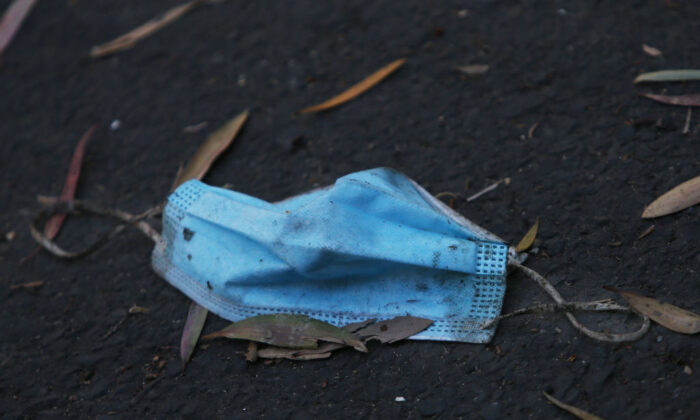The effectiveness of non-pharmaceutical interventions such as lockdown and social distancing was “weak,” according to an official report.
Lack of Strong Evidence
The report looked at a total of 151 studies reporting on the effectiveness of NPIs implemented in the community to reduce the transmission of COVID-19 in the UK.
It said that the “body of evidence available on the effectiveness of NPIs in the UK provides weak evidence in terms of study design, as it is mainly based on modelling studies, ecological studies, mixed-methods studies and qualitative studies.”
It added that there “is also a need to review and assess the evidence on the economic impact of NPIs as well as their wider impact, including on mental health and health inequalities.”
The report concluded that “there is a lack of strong evidence on the effectiveness of NPIs to reduce COVID-19 transmission.”
“The decision to implement lockdown and the pandemonium of rules unleashed on the British public during the crisis were, in the end, political decisions,” he added.
HART is an organisation that was set up to share concerns about policy relating to COVID-19.
Children
Last week, children’s charities criticised the government for the “preventable” harm caused to children during lockdown in a report for the COVID Inquiry.
In a report called “What about the children?” released on Wednesday by Save the Children, the Children’s Rights Alliance for England and Just for Kids Law said that the impacts of the government response to COVID-19 will be “long-lasting and era-defining.
The report was handed over to The COVID-19 Inquiry, the UK’s official probe which will “examine, consider, and report on preparations and the response” to the pandemic in England, Wales, Scotland, and Northern Ireland.”
Molly Kingsley, a co-founder at UsForThem, the parent campaign group formed in May 2020 to advocate against school closures, told The Epoch Times that there is “a real question that the Inquiry needs to ask about why not more children’s charities felt they could advocate strongly for children at the time it would have made a difference.”
She also noted that the report says that 5 million “children’s language skills are not age-appropriate” because of government COVID-19 policies, but it does not mention masks anywhere.
“It’s interesting that they’ve got a bullet point about speech and language, 5 million kids, one in every two children in the country, that’s a massive, massive statistic, who are behind in speech and language. And yet they have still shied away from having a conversation about the extent to which masking of children and adults played a part in that,” she said.


